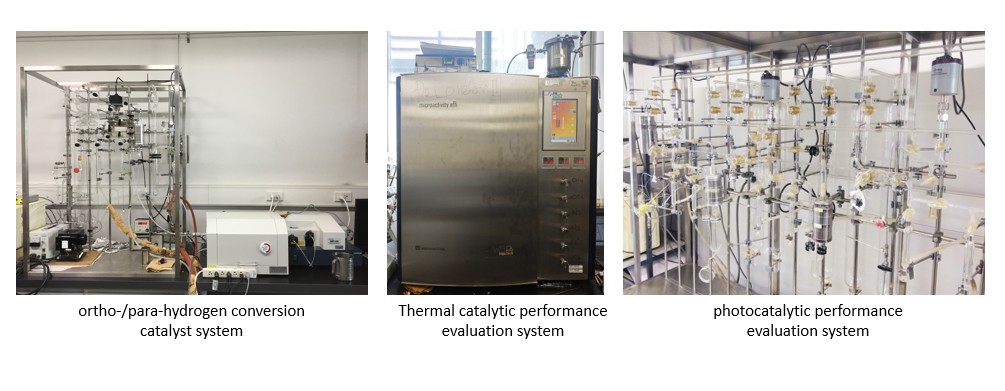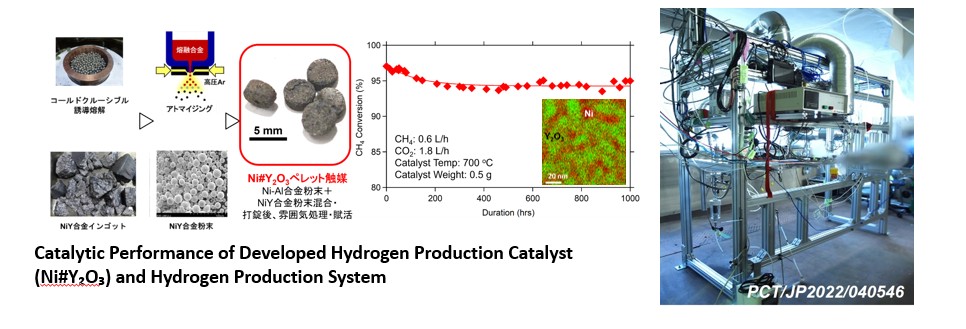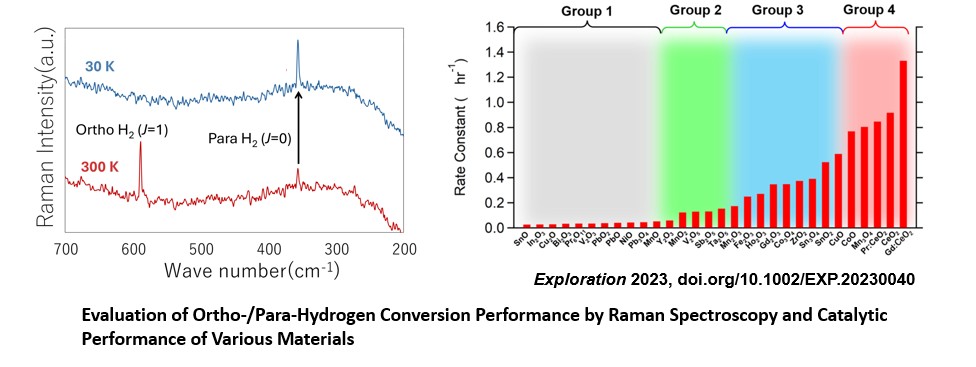Hydrogen Production Catalyst Materials Group
Member
Hideki ABE
SAMURAI
Group Leader, Hydrogen Production Catalyst Materials Group, Hydrogen Technology Materials Field, Research Center for Energy and Environmental Materials (GREEN)

Tetsuya KAKO
SAMURAI
Senior Researcher, Hydrogen Production Catalyst Materials Group, Hydrogen Technology Materials Field, Research Center for Energy and Environmental Materials (GREEN)

Shusaku SHOJI
SAMURAI
Researcher, Hydrogen Production Catalyst Materials Group, Hydrogen Technology Materials Field, Research Center for Energy and Environmental Materials (GREEN)

Motivation and Outline
Toward the realization of a future hydrogen society, a stable and affordable supply of “clean hydrogen”—hydrogen produced without carbon dioxide emissions—is essential. Our goal is to contribute to this transition by developing catalytic materials and reaction systems that enable the efficient production of clean hydrogen from diverse resources, including hydrocarbons and water.
(2030 target: price < 220,000 JPY/ton; supply volume > 3,000,000 tons/year)
Facilities
- Catalyst Material Synthesis
Arc melting furnace, gas-phase reaction reactor, glove box, Schlenk line, autoclave - Catalyst Material Characterization
Powder X-ray diffractometer, atomic force microscope, chemisorption analyzer, physisorption analyzer, multiple spectrometers, total organic carbon analyzer
- Catalyst Performance Evaluation
Thermal catalytic performance evaluation system, photocatalytic performance evaluation system, ortho-/para-hydrogen conversion catalyst system (Raman spectrometer combined with ~30 K cryostat), electrocatalytic performance evaluation system, chromatographs, and gas chromatography–mass spectrometer (GC-MS)

Research Results
We are pioneering the design of oxide–metal nanocomposite catalysts and reaction systems that enable the long-term, stable production of clean hydrogen from methane–carbon dioxide mixtures. In parallel, we are developing hydrogen nuclear spin conversion catalysts to reduce evaporative losses (boil-off) from liquid hydrogen, along with dedicated systems for evaluating their performance.





